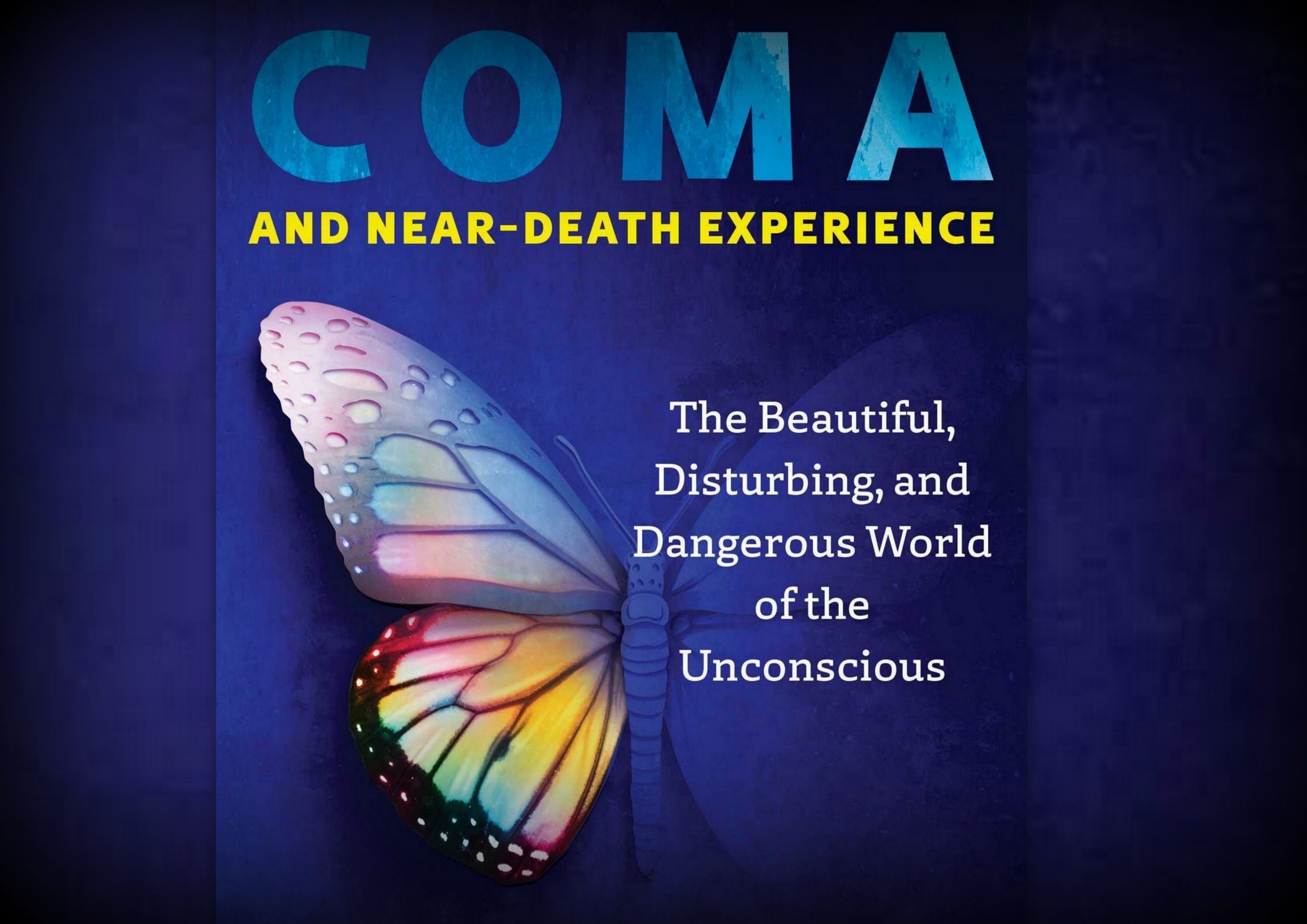
Alan Pearce discusses the book Coma and Near-Death Experience: The Beautiful, Disturbing, and Dangerous World of the Unconscious
(Stream / download audio at bottom of page)
Every day around the world, thousands of people are placed in medically-induced comas. For some coma survivors, the experience is an utter blank. Others lay paralyzed, aware of everything around them but unable to move, speak, or even blink. Many experience alternate lives spanning decades, lives they grieve once awakened. Some encounter ultra-vivid nightmares, while others undergo a deep, spiritual oneness with the universe or say they have glimpsed the afterlife.
Examining the experiences of those who have survived comas, the authors explore the mysterious levels of consciousness near-death experience unlocks. They demonstrate how a key element of the brain is switched off by coma-inducing sedatives, allowing the mind to break free from the body and experience a greater expansion of consciousness. Revealing the dangers of deep sedation and other intensive care procedures, the authors show how comas are unnecessary more often than not and that many coma survivors go on to suffer lasting cognitive and physical harm. Exploring proven alternatives to medically-induced coma, they share tried and tested protocols that are much safer.
Showing how we can avoid the suffering caused by comas, this book reveals the wide variety of conscious states that can arise during comas, both positive and negative, and how accepting the reality of these experiences is crucial not only to the recovery of coma survivors but also to the field of consciousness studies.
Bumper music: Cliff Martinez ‘Traffic OST’
Luke Howard ‘Shift’

2 comments
PS: I had a further hospitalisation in early May this year, for the same reason, and I got within a whisker of repeating the ordeal. They gave me a shot of Ketamin in ICU so I’m sure they were preparing to sedate me, so all of this was churned up again. I think it a strange synchronicity that this particular talk came out when it did. So, thanks again.
I’m trying to read this book, but it’s hard going. Everything in it is true to my own experiences. I spent two weeks in a coma having been rushed to hospital by ambulance with severe asthma in 2022. I passed out on the way and didn’t regain consciousness until two weeks later. I was heavily sedated, ventilated and later intubated.
The coma was one thing: I was somewhere else, deep in a thick, hot, black jungle. There was a black woman there. I didn’t know her. I think she was trying to help me, but I was very afraid of her. She inflated herself and became a spinning-top complete with barber-shop stripes and span round and around and around, it seemed like for days.
Coming round, was completely another: When I woke up, I was totally paralysed. I had drop foot, my throat had been cut and a pipe inserted. I continued to have all sorts of strange experiences. Among them was experiencing war with Russia, the abdication of the king, seeing bomb flashes, three Indian nurses holding crowns telling me that the war was good for India and that there was a lot of Ganesh energy about at the moment, a Russian attack helicopter hovering above to hospital and firing sound pulses into the building; the helicopter noise was deafening, I couldn’t hear anyone speaking to me! I could hear people saying terrible things about me, and I was convinced that the hospital was run by a covert witches coven who were killing patients. I also saw patients being quartered on special beds that sliced them from head to toe. The overriding aspect of these weeks was extreme fear and paranoia. There were many, many more experiences, but the point’s made.
During the months afterwards, I saw a cognitive psychologist (online, of course) who told me that there had been very little written on ICU hospitalisations, but the Pearce’s book shows that to be untrue. The Cognitive/behaviourist approach was utterly inadequate, inappropriate and pointless, the psychologist dismissed my experiences as ‘delirium’ or ‘hallucinations’ and tried to get me alter my behaviour whenever I had ‘flashbacks’. There was a post ITU online meeting every week run by the East Kent Hospitals Trust, which was useful in as much as it did help you to understand that you were not alone in having these experiences, but by necessity it was fairly shallow.
In the months previous to my hospitalisation I had come to believe, or discover or remember my previous life: I believe I had taken part in Operation Longcloth in Burma in early 1943 and had died during the withdrawal from exhaustion and illness. I cannot help thinking that this had precipitated my hospitalisation and there seems to me a congruence with my coma experience of being in a jungle.
Honestly, I just don’t know about any of this. It’s so extremely disorientating. There is nothing in our society that speaks to such experiences or prepares us for them. If you mention such things to anyone, they think you are insane and a distance or cordon is quickly created around you. What shocked me the most was the dismissive attitude of medical staff.
Anyway, all of that is just a long way of saying that I think this is probably the best episode you’ve ever done, even though the surface has barely been scratched. I thank you both for this conversation, for bringing this subject to the surface and just talking about it honestly and openly.
All the best ~ Dennis.
Leave a Reply
You must be logged in to post a comment.